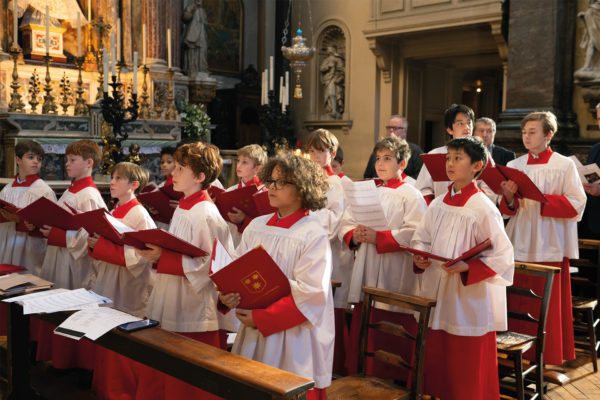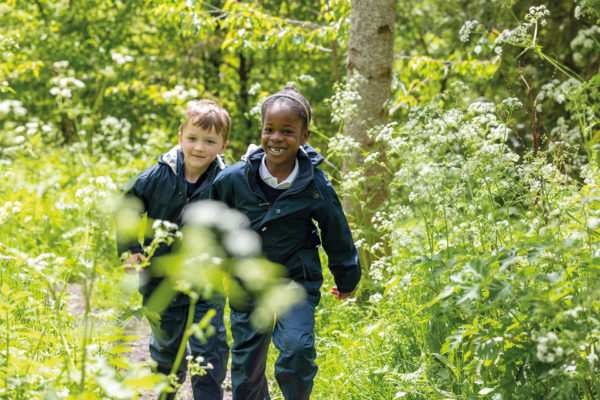The New Progressives
By
6 months ago
These Schools Are Demonstrating The Future Of Education.
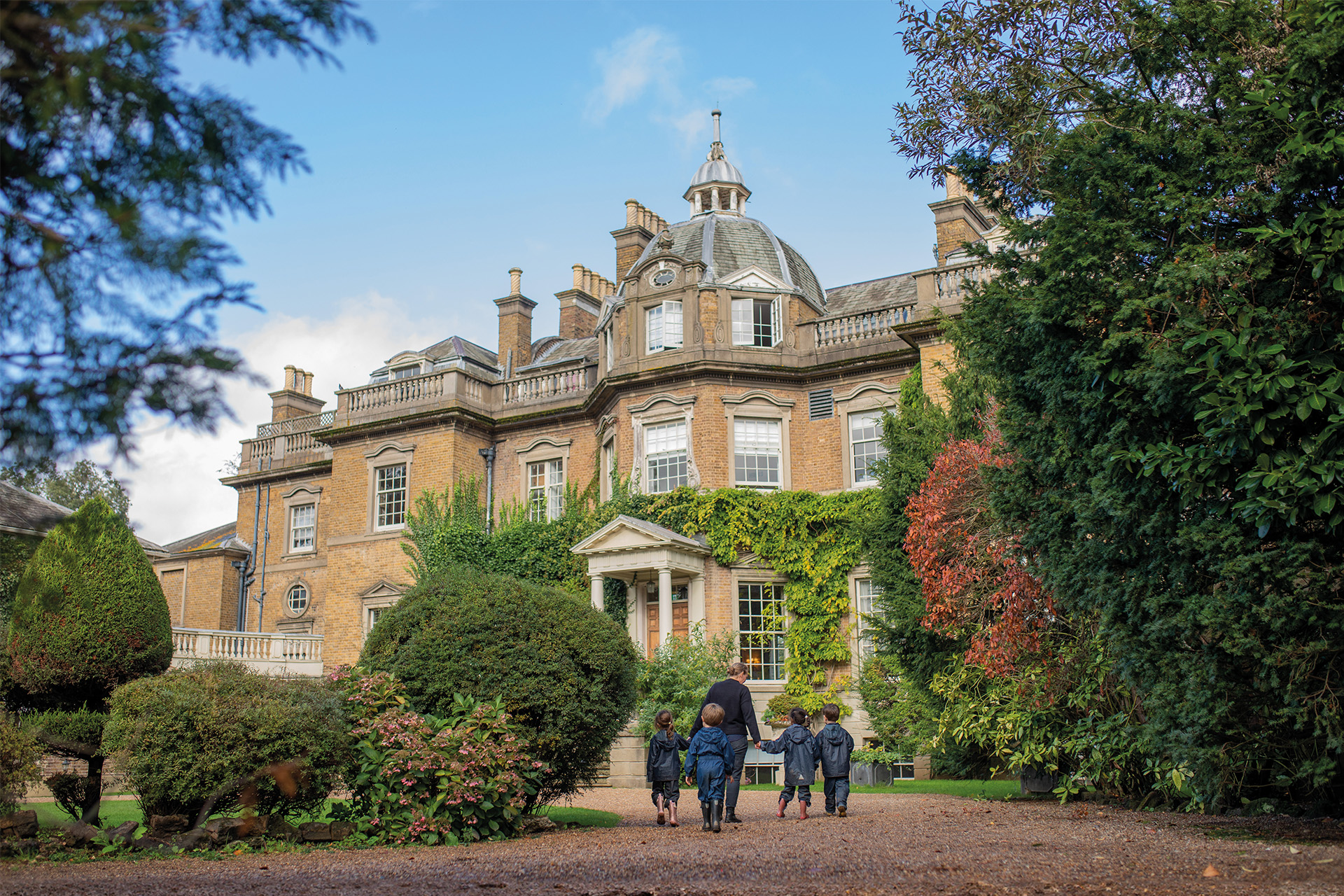
For some, the notion of picking a progressive education for their child can be daunting – in these uncertain days, shouldn’t we be sticking with tradition?
On the contrary, say some of Britain’s most exciting schools; now is the perfect time to reimagine education to ensure young people are ready to face a 21st-century world that is bringing unique challenges and opportunities.
At London Park Schools group, with two locations in Clapham and Mayfair for children aged 11 to 16, a Sixth Form in Victoria and with a Hybrid stream opening in 2024, the LPS group has built progressive education into its foundation manifesto, ‘A breath of fresh air’.
Under the Principalship and direction of Suzie Longstaff, LPS group, launched this year, aims to offer something different in the London day secondary sector.
Longstaff explains: ‘We are a group of schools taking an active stance against the pressures and burdens on young people today. The world is changing and so should the way in which we look at education. We can see the need for fresh thinking and a new approach, particularly in London where there is a lot of pressure on children and parents to get into schools where exams are the priority.’
The LPS group, which is part of Dukes Education, has designed a route through secondary school to take that pressure off, while ensuring children reach their full potential. Most pupils prepare for 8/9 GCSEs, which leaves them time to take part in the many clubs and extracurricular activities on offer.
‘We have seen that schools have got larger and larger,’ says Longstaff, ‘and this doesn’t always work for children who don’t want to be a tick in the register and want to be celebrated for who they are. I was head of a large day school in London for many years – and loved it dearly – but it’s not the best option for everyone.’
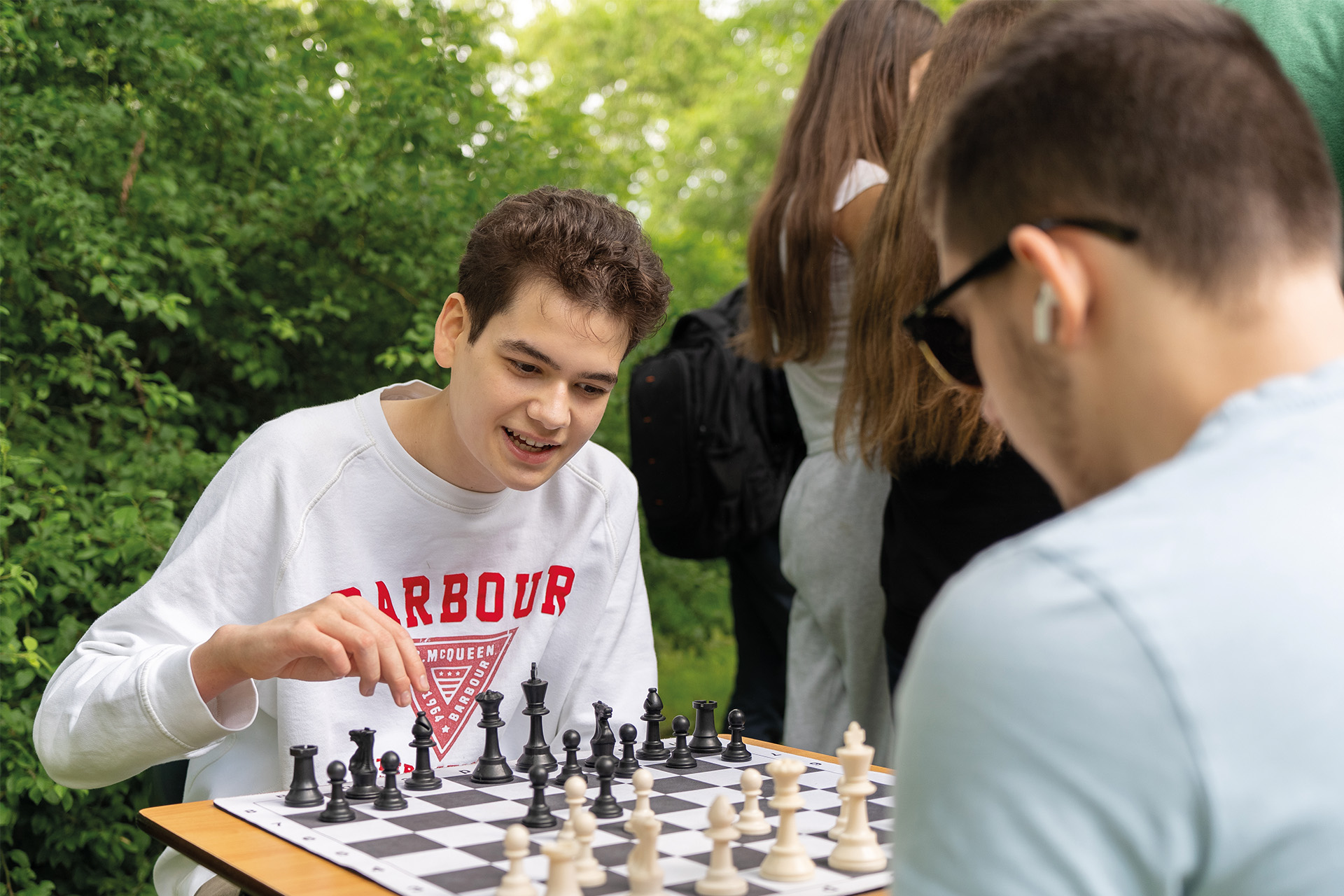
London Park Sixth students playing chess outside.
Pastoral care is prioritised across the group; a vertical tutor group system gives students the opportunity to build friendships across year groups; sixth formers have opportunities to mentor at the senior schools and also volunteer at a local primary school. Hybrid students meet their online tutor and group every day and once a week in person.
Few schools are as forward thinking as St Dunstan’s College, in South London, which has won awards for a unique approach to educating its 1,200 pupils. Reflecting their local environment, the pupils come from a broad range of backgrounds, socio-economic groups and cultures. Most recently, St Dunstan’s was named the ‘Most Progressive Independent School’ in London at the Private Education Awards 2023.
Head Nick Hewlett says: ‘I see our diversity as a tremendous asset and we couple it with a real renaissance education with a culture of respect where young people can excel academically.’
The school has also won praise for its ground-breaking Stuart Curriculum, which looks at relationships, skills for the future and critical thinking. Over the past few years, Stuart lessons – which take up an hour each week from years 7-11 – have focused on everything from cyber addiction, gambling and porn to conflict resolution and financial education. ‘It’s a huge commitment to set aside that time,’ says Hewlett, ‘but we want to build future proofing into the curriculum, so the pupils can tackle the issues that are going to come up.’
On Saturday morning, the school hosts the Lewisham Young Leaders’ Academy, which focuses on supporting local children of Black heritage. ‘Black kids in this borough are an underachieving demographic and we want to try and correct that,’ says Hewlett. ‘We also partner with XLP, a charity which works with a lot of disadvantaged kids in the area, to help narrow the disadvantage gap.’
In Dulwich, pupils at Alleyn’s School are also keeping their eyes on the future when they are not looking at the lights of the Canary Wharf twinkling on the horizon. Founded in 1619 by Edward Alleyn, a Jacobean player, the school is keen to continue mirroring the values embodied by its founder – and make education joyful.
‘He was a brilliant enterprising man of the people and we love that,’ says Head Jane Lunnon. Although the school is historic – over 400 years old – there is no sense of stiffness or entitlement here. She says: ‘We want to be at the vanguard of learning, soaking up new thinking and innovation close to home and across the world. Children can be the freshest thinkers and it is our duty to give them the opportunity and tools to bring their creativity, sense of wonder and enthusiasm to every day at school, so that they develop a love of learning in its purest sense, as well as build the skills that they will need for the jobs of the future.’
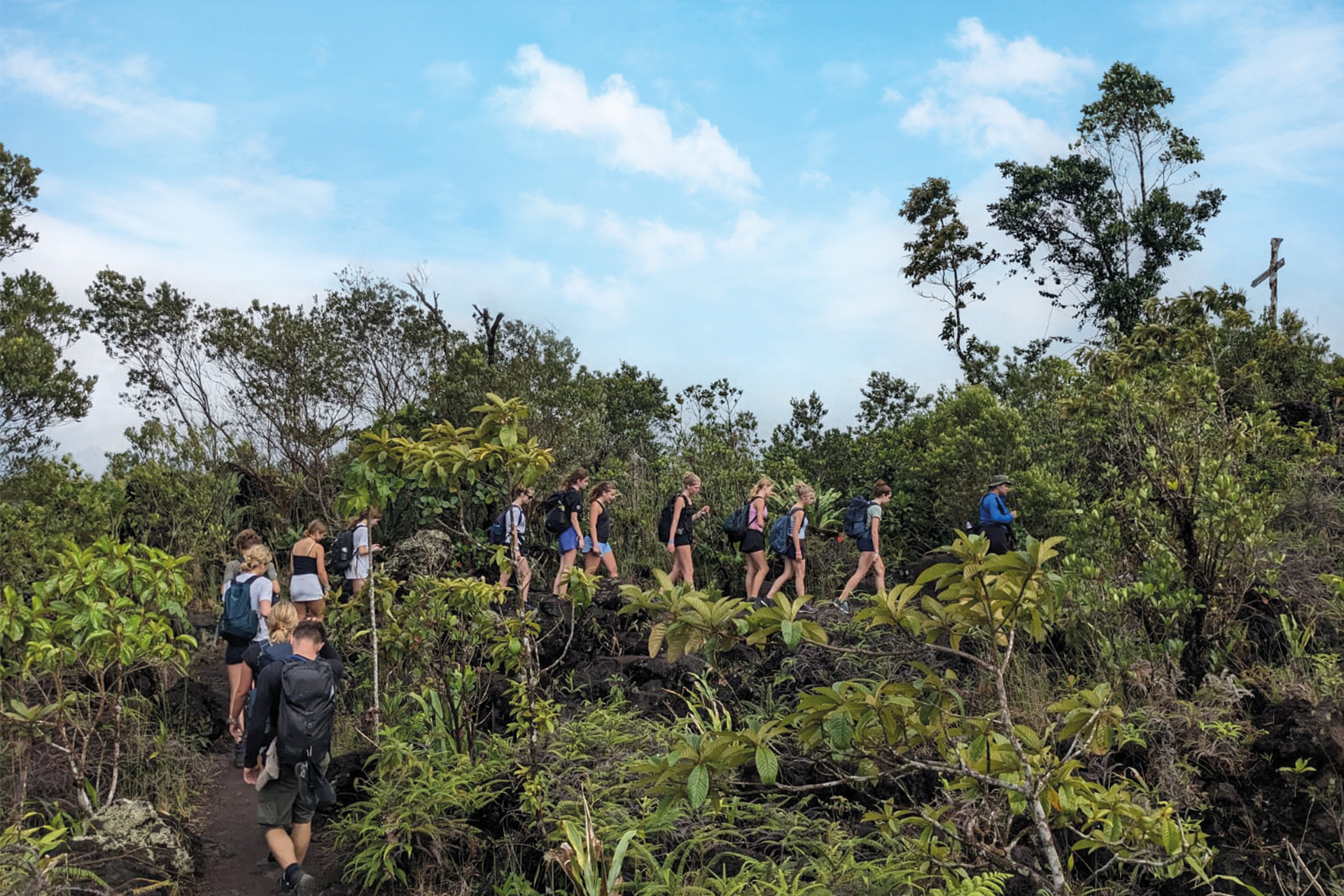
Alleyn’s Costa Rica trip.
This has led to the development of a new curriculum – the AiQ, which blends the traditional notion of intelligence (iQ) with the future (AI) alongside the cultural, emotional and moral intelligence to develop a human centric approach to artificial intelligence. ‘The schools’ music academy and sports academy are partnership programmes where children from Alleyn’s work with children from state schools in the area.’
Head of Alleyn’s Junior School, Simon Severino, says younger children are also encouraged to become well-rounded individuals: ‘We offer a plethora of opportunities for children to explore their passions and interests, as a well-rounded education is important to us. We live this value through the range of visiting speakers, numerous themed days, exciting day and residential trips and over 100 clubs each term. As teachers we are conscious of the needs of boys and girls, and we provide a very broad curriculum and co-curriculum to match.’
For those who prefer an even more flexible model, Hybrid@LPS is due to launch in September 2024 at the Mayfair campus – for students for whom attending school in person is not always possible. Hybrid@LPS Mayfair will offer four days teaching online with one day a week in school – centred around practical subjects such as Sport, Science, Art and Drama. A Sixth Form option is available.
‘For many families, hybrid is a welcome change to the rigidity of school models,’ explains Suzie Longstaff. ‘Hybrid attracts a wide range of families and past students have included budding sports stars with heavy training regimes, home schooled students migrating back towards integration into a school community, and many students and families who simply prefer to learn this way.’ Expert teachers deliver remote lessons and class sizes are deliberately small, and students receive a great deal of personalised feedback and attention. Students have the benefit of joining a full school community at least once a week, helping them get the best of both worlds, online and in person. Sports teams, shows, trips, clubs and all the aspects of school life that enrich are available.
The idea that it is always possible to offer more at progressive schools holds true at DLD College London, which is housed in a modern building with state-of-the-art facilities and on-site boarding.
‘DLD College London is a progressive school in more ways than one,’ says James Kidd, Principal, ‘from our no-uniform policy where we champion students’ individuality, letting them express themselves in a safe and nurturing environment to our forward-thinking curriculum, preparing students with the skills they need for the careers of tomorrow.
‘We truly believe that we are a school like no other, carving out a new model for success that is distinct from the established ‘Old Guard’.’ For example, Kidd says, the school has expanded the traditional offering of GCSEs and A-levels to include BTECs, offering students additional pathways into university or apprenticeships.
Sam Ayerst, Marketing and Communications Manager at DLD College London, which is part of the Abbey DLD Group of Colleges, adds: ‘We promote collaboration amongst student and teachers and extend this beyond the classroom into our local community through working with local charities and businesses during lessons as part of project-based learning as well as during co-curricular activities to foster a sense of community and teamwork.’
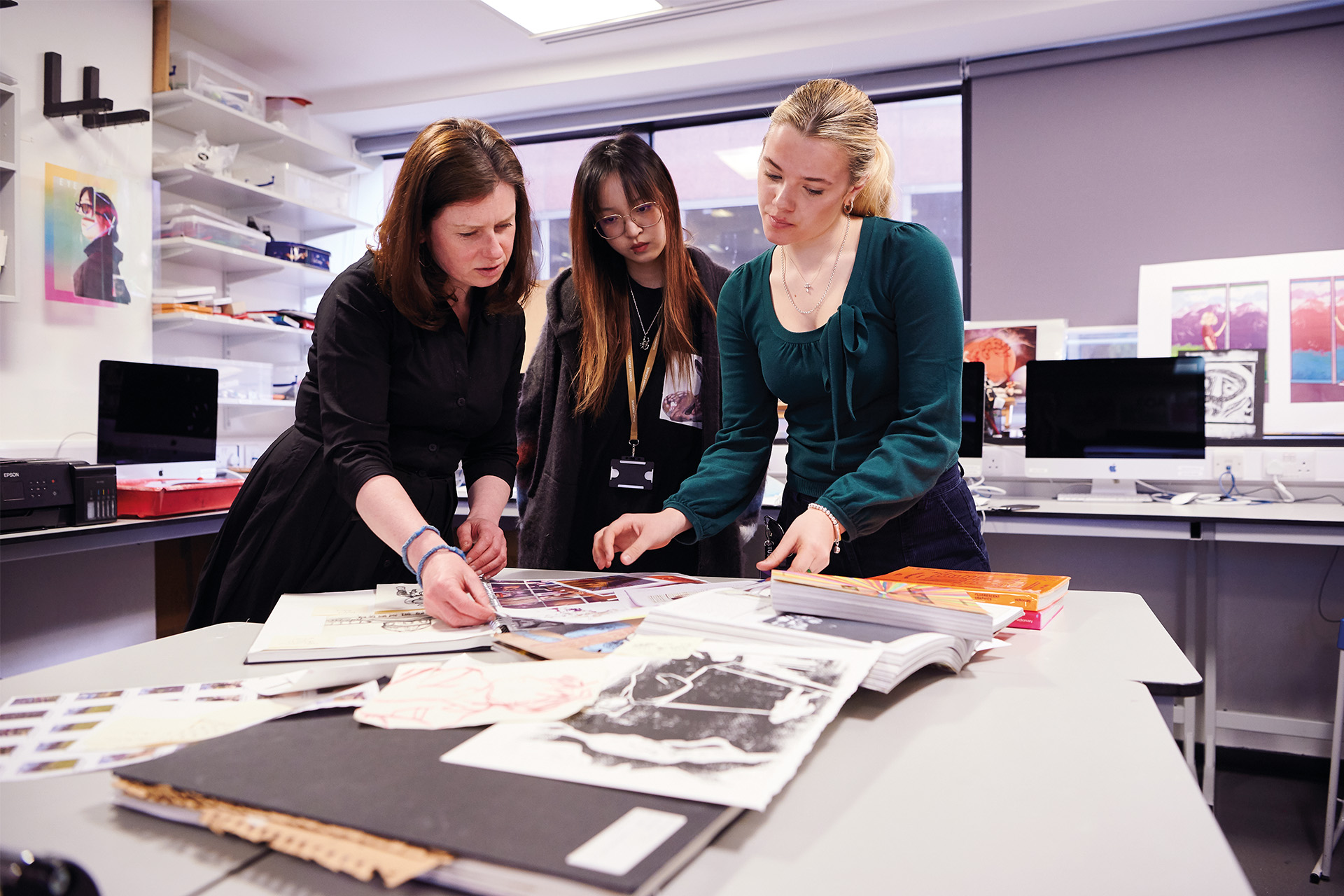
Pupils and staff at DLD College.
Student leadership is a huge part of the running of the school, with a student council providing a voice on issues including wellbeing, sustainability, events and charity work, inclusion, and diversity. And all pupils benefit from their location, across the Thames from the Houses of Parliament, a stone’s throw away from the Royal National Theatre and the heart of UK government.
LPS students, too, make the most of their London base, visiting art galleries, theatre productions and museums. ‘We believe in experiential learning. When our students learn about marine conservation and global warming, they do it in situ, while sailing a tall ship with a Professor of Marine Conservation or visiting a glacier in the Alps,’ says Longstaff.
At Hampton Court House (HCH) in West London, experiential learning is positively celebrated – as are all of the so-called ‘soft-skills’ learned through the performing and expressive arts, sport, and activities where children can be challenged outside of their comfort zone. Teachers are known by first names, there is an informal dress code and a later start timetabled for Sixth Formers.
Additionally, from Year 1, pupils start the award-winning LabelFrancÉducation accredited French/English bilingual immersion programme, where up to 40 percent of learning is conducted in French while the remainder of lessons are taught in English.
Katherine Vintiner, Head of Hampton Court House, says she is unapologetic about being ‘idealistic’ about the power of education to transform young people, and HCH is the perfect environment for this to happen.
‘Walking through the gates at HCH,‘ says Vintiner, ‘transports our children to a special place where they can thrive and flourish, where they are respected and valued as independent and autonomous individuals, and where they are known and deeply cared for by every member of staff. Our children are empowered, enabled, and treasured.’




